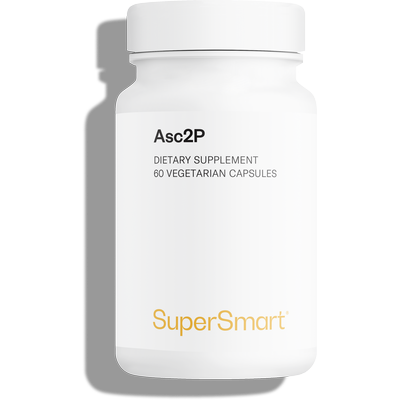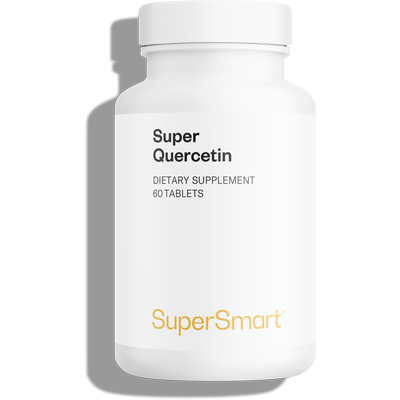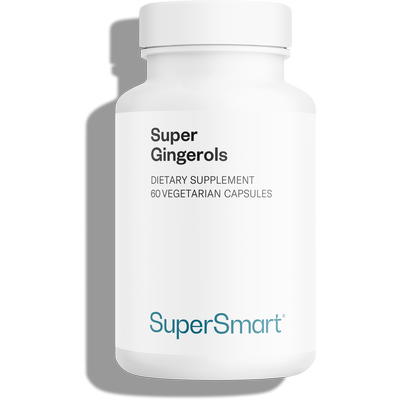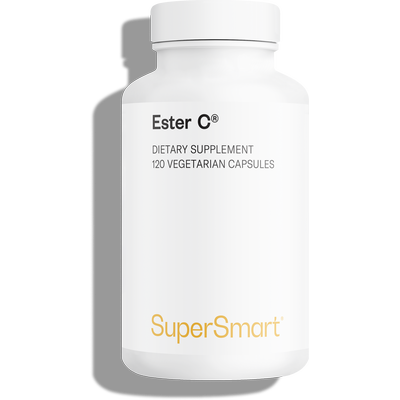Your natural, practical guide to a healthy spring: solutions, solutions, and nothing but solutions
 The birds are singing, the air has turned milder, spring is in full swing and life feels good. But like the other seasons, spring brings its own issues: by the time it arrives, winter has taken a toll on the body, the liver and digestive system are sluggish, and insomnia and heartburn are never far away …
The birds are singing, the air has turned milder, spring is in full swing and life feels good. But like the other seasons, spring brings its own issues: by the time it arrives, winter has taken a toll on the body, the liver and digestive system are sluggish, and insomnia and heartburn are never far away …
How can you best support your body through this seasonal transition? How can you get the most out of spring’s natural riches and approach summer in the best possible shape?
Before the advent of modern medicine, our predecessors knew how to get the best out of the seasons’ resources in order to cope with the changes to come. They knew that there was nothing random about the availability of food and plants: for example, the higher energy density of autumn vegetables (such as potatoes, pumpkins and parsnips) helps us withstand the rigours of winter, while summer fruit and veg (such as tomatoes, peppers and apricots) contain precious carotenoids which help reduce the effects of the sun’s UV rays.
Fortunately, these secrets have all been passed down through the generations, and in some cases, have even been rediscovered by science today. Here are some which can be easily adapted to your daily routine …
Put an end to seasonal energy lows
Bouts of fatigue are particularly common in spring. Winter diets have sapped the digestive system while at the same time, there’s a rapid rise in basal metabolism due to the effect of increasing brightness. It’s the perfect time to embark on a detox, a brief period during which you modify your diet by prioritising certain food groups.
The aim here is not to lose weight but to purge the digestive system by eating fewer foods that the body has to work hard to digest and get rid of. In this way, the axes of digestion are restricted, there are fewer waste products to be eliminated and the reserves of micronutrients the body needs in order to function properly can recover.
This type of spring-cleansing usually brings a number of benefits for health:
- It helps combat the ageing process and oxidative stress (through the mechanism of calorie restriction).
- It improves the lipid profile.
- It stimulates the immune system.
- It steers us towards a healthier lifestyle (as the benefits gained deter us from returning to our bad habits).
- It improves the waistline (though not necessarily through weight loss).
- It helps us rediscover the taste of food and the feeling of satiety.
In practice: for one week, eat only seasonal fruits (strawberries, avocadoes, lemons, prunes, grapefruit) and vegetables (cabbage, cress, radishes, rhubarb, chard, asparagus, artichokes, spinach), produced locally, if possible. Eat no other food during this time. If you find this too much of a challenge, you can eat a little brown or semi-brown rice. Remember, this is not a diet: you should eat to satisfy your hunger – no more and no less.
Follow Nature’s spring revival
In spring, the idea is to quickly revitalise the body, to give it a major boost, in harmony with the revival happening simultaneously in Nature, and to support the upswing in adrenal and genital function.
Prepare this ‘house’ breakfast, mixing in a bowl a combination of spices, cereals and seasonal fruits, drizzled perhaps with a plant-based milk:
- Cinnamon powder. For its exceptional antioxidant potency (it’s one of the most powerful natural food sources).
- Candied or grated ginger. For its tonic effect.
- Some almonds. For their content in plant proteins, and their high levels of vitamin E and squalenes (precursors of phytosterols).
- Some pumpkin seeds. For their amazing manganese content.
- Some toasted sesame seeds. For their content in fibre, magnesium, zinc and sesamines (lignans which offer exceptional antioxidant properties (1-2)).
- Red berries (as soon as they’re available, and if not, apples will do): for example, blueberries, strawberries and blackcurrants. For their flavonoids (proanthocyanins and anthocyanins), catechins and vitamin C (they contain 3-4 times as much vitamin C as an orange).
- Oat flakes. For their content in beta-glucan, a type of soluble fibre which promotes cholesterol excretion by reducing its production by the liver, and which normalises intestinal transit (3).
To accompany your breakfast, drink a infusion of ginger that’s not too hot (as soon as the water starts to boil, add the finely-chopped ginger and leave to infuse for 20 minutes), and in addition, take a a ginger extract standardised to 20% gingerols (2 capsules a day for 3 weeks). Gingerols are the main active components in ginger: they are recognised for their exceptional antioxidant benefits (4-5), whether raw or cooked.
Last but not least, take a vitamin C capsule with your breakfast each morning while you wait for the summer fruits and vegetables to arrive (particularly red berries and peppers which contain substantial amounts): Triple C.
Say goodnight to springtime insomnia
One of the most overlooked ways of banishing the common experience of springtime insomnia is to go for a walk in the countryside. Simple, natural, scientifically proven, and offering nothing but benefits, the practice of ‘getting back to Nature’ is being rediscovered in Japan under the name Shinrin-yoku which means ‘forest bathing’.
It takes just a few minutes in the forest to restore indicators of vitality, boost immunity (6), reduce stress levels (7), promote personal fulfillment and induce sleepiness (8). Indeed, researchers at the Forestry and Forest Products Research Institute have shown that people who walk in woodland settings have far less cortisol in their blood (cortisol is a hormone that plays a key role in the development of stress) than those who walk the same distance in a town.
Multiple mechanisms of action are responsible for this near-miraculous effect:
- The air which is naturally enriched with essential oils produced by the trees (which have invigorating, immune-stimulant, and decongestant effects). Phytoncides is the term used to describe these molecules emitted by plants which are known to play a role in plant protection and communicaton.
- The simple act of visualising Nature which increases our focus on more natural stimuli (the freshness of the air, the more subtle scents, colours and sounds) and helps us ‘let go’ (this has been measured in a study by a reduction in blood flow in the pre-frontal cortex)(9).
- The physical activity involved in walking.
- The benefits of natural light on the body (stimulation of awareness and cognition, vitamin D production, the effect on production of serotonin which influences mood and sleep, regulation of the internal body clock, particularly by melatonin).
Spring is the perfect time to reconnect with Nature. The sun’s rays have not yet become damaging as the Earth is too far away from the sun: you can therefore safely take a walk in the sunlight at any time of day.
It’s also the time to maximise your vitamin D production in order to replenish reserves depleted after the winter months when the sun has barely made an appearance. Supplementing with vitamin D is an absolute must if your job keeps you inside and if sunshine levels in your area are not very high (it is found in very few foods): you can choose between a 5000 IU supplement of vitamin D or one containing 1000 IU depending on your needs and how often you walk, in order to rapidly restore your vitamin D stocks and prevent deficiency over the winter to come.
You can enhance the benefits of these country walks by taking extracts of valerian and rhodiola (Orpin rose) which help reduce insomnia (10) and stress (11) (when taken at bedtime) though it’s best to take such extracts in tablet form as infusions and tisanes have a diuretic effect which is likely to get you up in the night. Natural Sleep Formula is one such formulation, which also contains hop and tryptophan.
Eliminate seasonal heartburn
Another slight problem with spring is that the change in diet (with less fat and meat than in winter) and the increase in metabolic activity puts greater demands on the stomach which then produces too much acid.
Reduce your consumption of vegetables from the alliaceae family (onions, garlic) and resist the urge to take pharmacy medication (such as antacids, H2 antagonists or PPIs)! Continue to gradually reduce your meals (and avoid lying down after eating) and look into natural extracts such as Anti-Acid Reflux Formula, a natural anti-reflux formula that contains liquorice, red elm and pomegranate extract.
A tip from Dr Jean-Christophe Charrié (12) is to drink raw potato juice, as freshly-pressed as possible (the juice oxidises very rapidly). Its virtues come from the fact that potatoes are rich in an enzyme with mucosa-healing benefits.
Minimise spring allergies
It’s estimated that incidence of seasonal allergies has quadrupled in the space of 30 years. Unfortunately, such problems seem to be triggered in childhood! The only option is to reduce the severity of attacks and limit the inflammatory response to certain types of pollen. In this respect, there’s a little-known natural solution called quercetin!
It’s a plant-source antioxidant which inhibits production of histamine (a neurotransmitter responsible for allergy symptoms) (13-15). Perhaps you’ve already heard of it for its ability to improve the body’s absorption of vitamin C – it is often added to vitamin C supplements for this reason. It’s also available as a supplement in its own right such as the product Super Quercetin (with a dose of 500mg per capsule).
And do you know which foods are the best sources of quercetin? Red berries (grapes, blueberries, cranberries, redcurrants, strawberries, cherries ...), the first of which arrive … in May. There’s no doubt, Nature does things incredibly well.
The ‘springtime essentials’:
- Cinnamon (sticks or powder).
- Wild garlic and sorrel – pick and add to salads.
- Fresh ginger or extracts standardised in gingerols (Super Gingérols).
- Vitamin C: in the form ofascorbate orvitamin C ester.
- Red berries.
- ‘Forest bathing’: ideally 45 minutes a day.
- Vitamin D: in supplement form to compensate for the deficiencies of winter (5000 IU ou 1000 IU).
- Essential oils of balsam fir and Scotch pine: to boost immunity.
- Lime tree sapwood: in an infusion or decoction.
References
1. Kiso Y. Antioxidative roles of sesamin, a functional lignan in sesame seed, and it's effect on lipid- and alcohol-metabolism in the liver: a DNA microarray study. Biofactors 2004;21(1-4):191-6.
2. Suja KP, Jayalekshmy A, Arumughan C. Free radical scavenging behavior of antioxidant compounds of sesame (sesamum indicum L.) in DPPH(*) system. J Agric Food Chem 2004 February 25;52(4):912-5.
3. Marlett JA, McBurney MI, Slavin JL. Position of the American Dietetic Association: health implications of dietary fiber. J Am Diet Assoc. 2002;102:993-1000.
4. Chrubasik S, Pittler MH, Roufogalis BD. Zingiberis rhizoma: a comprehensive review on the ginger effect and efficacy profiles. Phytomedicine 2005 September;12(9):684-701.
5. Monograph Zingiber officinale (Ginger). Altern Med Rev 2003;8(3):331-5.
6. Li Q, Morimoto K, Kobayashi M, Inagaki H, Katsumata M, Hirata Y, Hirata K, Suzuki H, Li YJ, Wakayama Y, Kawada T, Park BJ, Ohira T, Matsui N, Kagawa T, Miyazaki Y, Krensky AM, « Visiting a forest, but not a city, increases human natural killer activity and expression of anti-cancer proteins », Int J Immunopathol Pharmacol, vol. 21, no 1, 2008, p. 117-27.
7. Park BJ, Tsunetsugu Y, Kasetani T, Hirano H, Kagawa T, Sato M, Miyazaki Y, « Physiological effects of Shinrin-yoku (taking in the atmosphere of the forest)--using salivary cortisol and cerebral activity as indicators », J Physiol Anthropol, vol. 26, no 2, 2007, p. 123-8.
8. Bratman G, Daily G et al. The benefits of Nature experience: Improved affect and cognition. Landscape and Urban Planning, 138, 41-50, 2015. http://dx.doi.org/10.1016/j.landurbplan.2015.02.005
9. Bratman G, Hamilton P et al. Nature experience reduces rumination and subgenual prefrontal cortex activation. PNAS July 14, 2015. 112 (28) 8567-8572; published ahead of print June 29, 2015. https://doi.org/10.1073/pnas.1510459112
10. Fernández-San-Martín MI, Masa-Font R, et al. Effectiveness of Valerian on insomnia: a meta-analysis of randomized placebo-controlled trials. Sleep Med. 2010 Jun;11(6):505-11.
11. Bystritsky A, Kerwin L, Feusner JD. A pilot study of Rhodiola rosea (Rhodax) for generalized anxiety disorder (GAD). J Altern Complement Med. 2008 Mar;14(2):175-80.
12. Charrié JC, Clermont-Tonnerre ML. Se soigner toute l’année au Naturel. Editions Prisma. Novembre 2015
13. Yoshimoto T, Furukawa M, et al. Flavonoids: potent inhibitors of arachidonate 5-lipoxygenase.Biochem Biophys Res Commun 1983 Oct 31;116(2):612-8.
14. Otsuka H, Inaba M, et al. Histochemical and functional characteristics of metachromic cells in the nasal epithelium in allergic rhinitis: studies of nasal scrapings and their dispersed cells. J Allergy Clin Immunol 1995;96:528-536.
15. Thornhill SM, Kelly AM. Natural treatment of perennial allergic rhinitis. Altern Med Rev. 2000 Oct;5(5):448-54. Review.

A stable and potent form of vitamin C that can penetrate cells, and that maintains telomere length
www.supersmart.com
A pure source, optimal concentration and a wider range of properties
www.supersmart.comAll rights reserved
Free
Thank you for visiting our site. Before you go
REGISTER WITHClub SuperSmart
of exclusive benefits:
- Free: our weekly science-based newsletter "Nutranews"
- Special offers for club members only
















